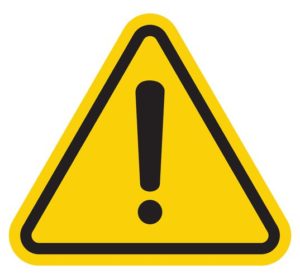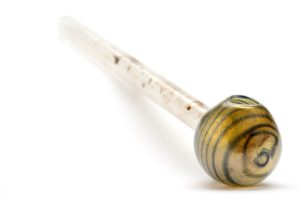Like any parent, you hope that your teen will be happy and healthy. However, many teens choose to experiment with drugs and alcohol during their formative years, so it is important to be aware of the most common signs of drug use in teens. While there is no guarantee that one of these signs on its own indicates drug use, a combination of several warning factors could signify a problem. Here are 15 of the most common signs of drug use in teens that you should watch for.

1 – Changes in Speech Patterns
Pay attention to any changes in the way your teen speaks. If you notice that they are suddenly speaking much faster or slower than they normally do, drugs could be the culprit. Uppers, like cocaine and methamphetamines, can make a user seem hyperactive, often speaking at a rapid, manic pace. Downers, like marijuana and heroin, can cause slow, lazy speech. Slurred speech is a common sign of alcohol consumption or the abuse of some prescription medications. Of course, a single instance of different speech patterns doesn’t necessarily mean that your teen is using drugs. They could just be especially excited or tired. Look for ongoing patterns over time to get a better sense of the cause.
2 – Bloodshot or Glazed Eyes
Alcohol and many drugs, both prescription and illicit, can cause physical changes to the user’s body, and the eyes are often the first giveaways. In many users, you’ll notice that their eyes look bloodshot, glazed over or heavy-lidded. It is possible that these signs could mean that your teen is just overtired from a heavy schoolwork load or is suffering from seasonal allergies, so again, watch out for patterns over time, and be alert for other possible signs of drug use.
3 – Increased Secrecy

Teenagers are not known for being open and forthcoming, especially with their parents. As they grow older and more independent, they typically become increasingly concerned with privacy. In general, this is just part of growing up and is no cause for concern. However, if you notice that your teen has suddenly taken to spending all of their time in their bedroom with the door locked and is nervous and evasive when you ask what they are doing in there all day, you may need to be extra vigilant. Do your best to let your teen enjoy the privilege of privacy while still keeping tabs on what they are up to.
4 – Changes in Friends
The teenage years are the time for a young person to carve out a personal identity, discover their passions and become an adult. As a result of this crucial process, your teen may find that they no longer have as much in common with their childhood friends as they used to. In this stage of their lives, many teens make new friends, letting old friendships languish. Although it is sad to say goodbye to old friends, this is all part of growing up. However, this process usually happens gradually, not overnight. If your teen is suddenly blowing off long-term friends in favor of hanging out with a new crowd, there is likely a reason behind the abrupt change. It could be that the new circle of friends uses drugs, and the old friends do not approve.
5 – Loss of Interest in Favorite Activities
Similarly to the previous example, many teens go through changes in their activities during this stage of life as well. As they are exposed to more opportunities, they may find new activities that they prefer over their past hobbies. When this becomes a problem, though, is when your teen no longer wants to participate in any extracurricular activities, whether they be sports, music, reading or other pursuits. It is normal to want to drop some activities, but not all of them all at once. Talk to your teen to find out what is behind the change in preferences, and encourage them to continue at least some activities, even if they want to drop a few.
6 – Changes in Sleep Habits

It is quite common for teens to sleep half the day away on the weekends when they don’t have to go to school. Academic rigors, combined with extracurricular activities and hormonal changes, can leave your teen feeling exhausted by the end of the week. It is perfectly fine to let your teen sleep in from time to time, but if you notice drastic changes, you may want to take a closer look. If your teen is suddenly staying up all night or getting up super early in the morning, they may be using drugs when no one else is awake. As with many of the other signs on this list, be on the lookout for ongoing patterns, not single instances.
7 – Stealing Around the House
Teens like to test boundaries to determine what they can and cannot get away with, and that sometimes includes stealing. The occasional $20 bill missing from your wallet, while undesirable, is likely nothing to be concerned about, but if this happens frequently, it could indicate that your teen is fueling a drug habit. Keep an eye out for missing items around the house as well, particularly valuable ones, as your teen could be selling them for money with which to buy drugs. If your teen is constantly asking for spending money and you have no evidence of where that money is going, it could be going to drugs.
8 – Changes in School Performance
Many teenagers, especially those in their final years of high school, experience burnout due to the increasing rigors of the college prep curriculum. Because of this, it is common for them to let their grades begin to slip a little bit as they near the end of adolescence. As a parent, it is your job to teach your teen to dig in and work hard, even when their motivation is waning. While occasional lapses in motivation are to be expected, it is cause for concern if your straight-A student is suddenly failing classes. This goes far beyond a typical case of “senioritis.”
9 – Rapid Weight Changes

Many drugs can affect appetite, so be watchful for major changes in your teen’s weight. For a teen in the normal weight range for their height, small fluctuations are nothing to worry about and can likely be chalked up to puberty. However, if your teen has suddenly lost a large amount of weight, leaving him or her looking frail and overly thin, drugs could be a factor. Of course, eating disorders and other psychological conditions can also contribute to rapid weight loss, as can a number of medical conditions, so it is important to explore all possibilities before assuming that drugs are to blame.
10 – Unusual Odors
Marijuana, alcohol, and cigarettes can leave a lasting odor, even hours after consumption, so be on the lookout for these smells when your teen comes home after hanging out with friends. While it is possible that your teen chose not to partake, even though others in the group were using, this is likely just an excuse. Many teens use their friends as scapegoats to hide their own actions, so be aware of this possibility. Take note, as well, if your teen has suddenly taken to wearing copious amounts of perfume or cologne. While this could be a misguided attempt to impress a possible love interest, it could also be to mask the smell of other things.
11 – Poor Personal Hygiene
When someone is in the throes of an addiction, no matter what their age, personal hygiene is often one of the first things to go. When someone is addicted to alcohol or drugs, things like brushing their teeth and washing their hair lose importance, fading under the all-consuming draw of the drugs. Many teens are quite concerned with their physical appearance, especially if they are trying to impress potential romantic partners, so a sudden drop in personal hygiene could signal a larger issue.
12 – Memory Issues

Everyone forgets things every once in a while, especially when busy, so occasional memory lapses are usually no reason to worry. However, if you notice that your teen is frequently forgetting things you told them just hours ago or is unable to recall entire days or nights, drugs or alcohol may be the culprit. Some prescription medications can cause memory loss as well, so be sure to check with your teen’s doctor to rule out any other possible causes for this problem.
13 – Unexplained Injuries
While under the influence, your teen may sustain unusual or unexplained injuries. This could be because they engage in especially risky behavior while under the influence, or it could be that they are using drugs to the point where they lose basic motor control, resulting in injuries. In some cases, they may not even remember how the injury occurred. If your teen is evasive or confused when you ask about a particular injury, they could be hiding that drugs or alcohol were involved.
14 – Frequent Illness
Abusing drugs or alcohol can wreak havoc on the immune system, making it more difficult for the body to fight off common illnesses, like colds and the flu. If your teen is normally healthy but has suddenly become more prone to illness, drugs could be playing a role. Of course, there are many other factors that can diminish immune function, so take the time to take your teen to the doctor to check for any underlying medical conditions or other possible causes.
15 – Presence of Drugs or Drug Paraphernalia

This is the most obvious indicator that your teen is using drugs. If you find things like pipes, rolling papers, syringes or burnt spoons in your teen’s room, it is very likely that your teen is partaking. It is possible that your teen is just “hiding it for a friend,” but it is more likely that that is just an excuse. We’re not suggesting that you go through all of your teen’s belongings, but keep an eye out for anything out of the ordinary while you are cleaning the bedroom or putting away laundry.
Identifying Drug or Alcohol Abuse
Before you immediately jump to the conclusion that your teen is using drugs or alcohol, make the effort to talk to them about it. The better the relationship that you have with your teen, the easier this process will be. If there is an aunt, uncle or other family member that your teen is especially close with, tusehat person may have better luck getting them to open up.
The important thing is to approach the conversation in a compassionate manner, not an accusatory one. You want your teen to feel comfortable talking to you about drugs and alcohol, not become defensive and withdraw even further. Take the time to listen as much as you talk to find out what is going on in your teen’s life. The more you know, the better you will be able to recognize the warning signs of drug use in teens.
Get Your Teen the Help They Need
If you determine that your teen is, in fact, abusing drugs or alcohol, it is important to seek help right away. Because teens’ brains are still developing, they are more prone to falling victim to addiction than any other age group. The sooner you can intervene, the better their chances of recovery.
Here at the Riverside Recovery Center, we have helped countless teens and adults get on the path to recovery so that they can go on to live meaningful, fulfilling lives, without the use of drugs or alcohol. We welcome you to get in touch with us to learn more about our rehabilitation programs and how we can help your teen kick bad habits and become healthy once more. Reach out today to schedule an appointment for a free consultation with one of our expert drug and alcohol therapists. Rest assured, there is light at the end of the tunnel.

Excellent blog here! Also your site loads up fast!
What web host are you the usage of? Can I get your affiliate link for your host?
I desire my website loaded up as fast as yours
lol
Pretty part of content. I simply stumbled upon your website and in accession capital to say that I acquire actually enjoyed account your blog posts.
Any way I’ll be subscribing on your feeds or even I
achievement you get entry to consistently fast.
Hi this is kinda of off topic but I was wondering if blogs use WYSIWYG
editors or if you have to manually code with HTML.
I’m starting a blog soon but have no coding knowledge so
I wanted to get advice from someone with experience. Any help would
be greatly appreciated!
That is really attention-grabbing, You’re an excessively
skilled blogger. I’ve joined your feed and stay up
for searching for extra of your fantastic
post. Additionally, I have shared your web site in my social networks
Every weekend i used to visit this web page, for the reason that i want enjoyment, for the reason that this this site conations in fact pleasant funny data
too.
This paragraph gives clear idea designed for the new people of blogging, that genuinely how to do blogging and site-building.
Greetings from Colorado! I’m bored to death at work so I decided to browse your
website on my iphone during lunch break. I enjoy the
information you present here and can’t wait to take a look when I get home.
I’m shocked at how quick your blog loaded on my phone ..
I’m not even using WIFI, just 3G .. Anyhow, wonderful blog!
Howdy! I just would like to offer you a big thumbs up for the great information you have
got here on this post. I will be returning to your web site for more
soon.